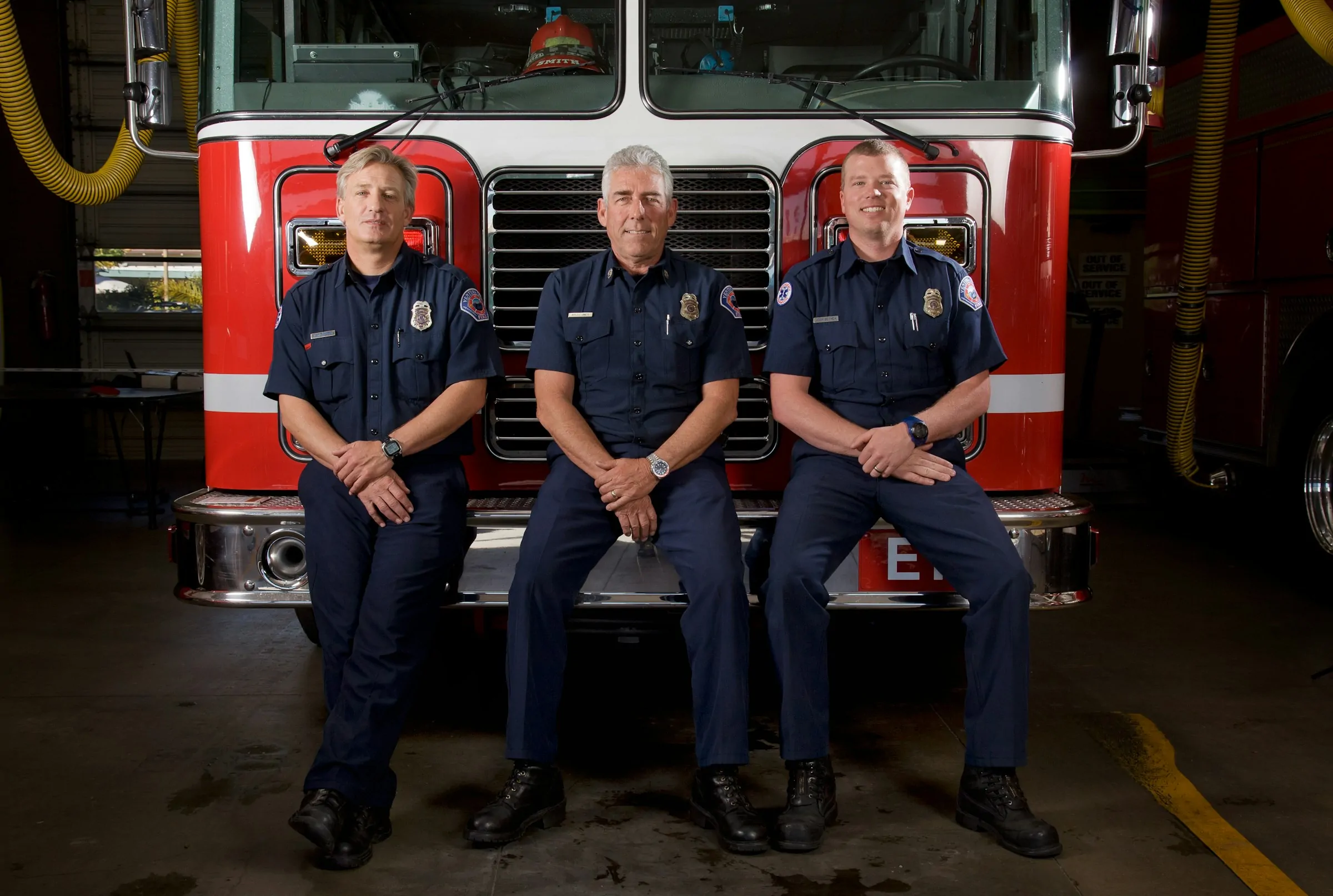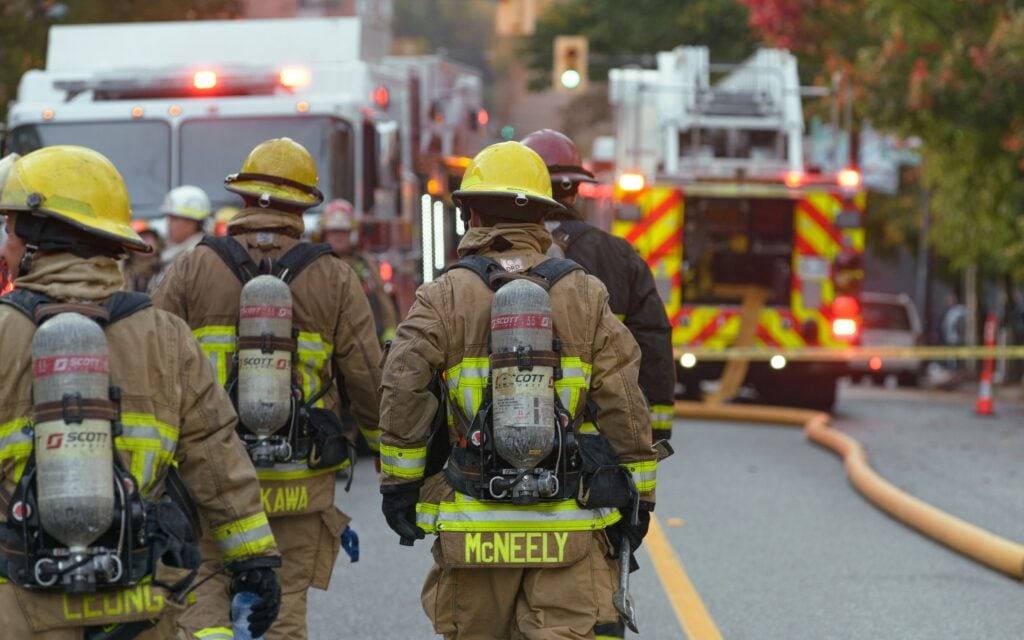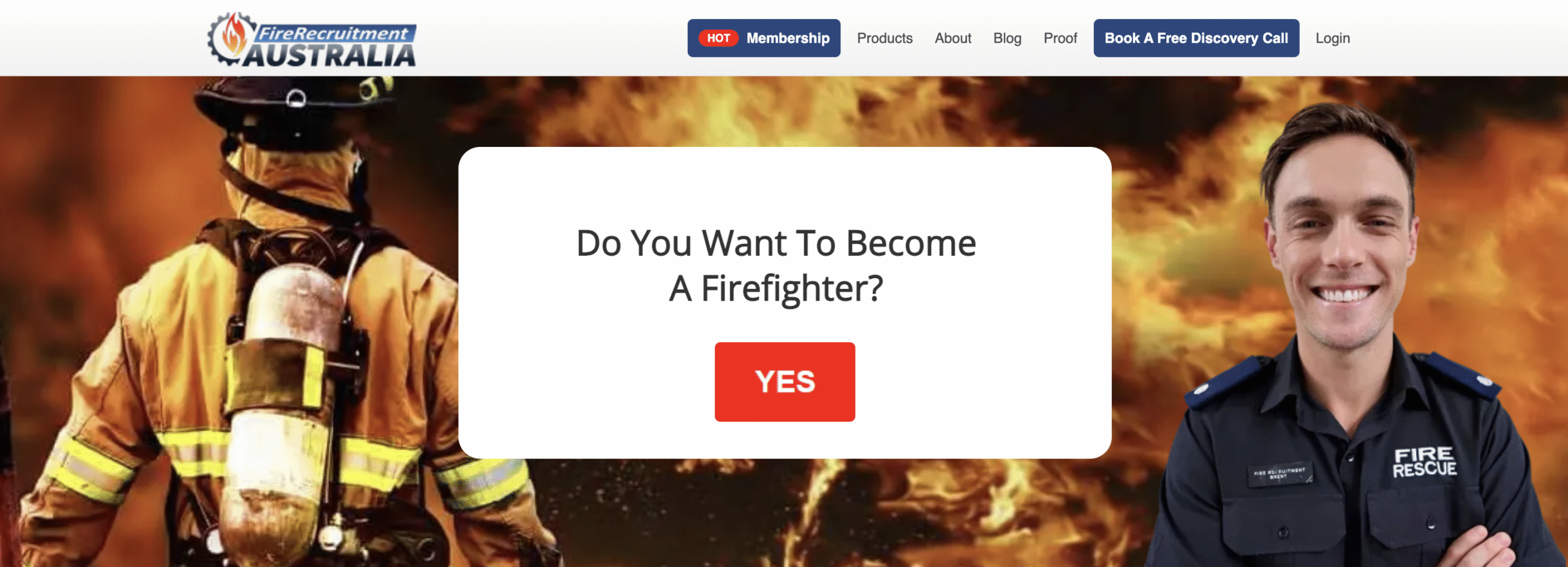How to Demonstrate FRV’s Core Values in Your Firefighter Interview

Consider you’re sitting in a room, preparing for what may be the most important conversation of your life. The firefighter interview panel walks in and takes a seat. As they introduce themselves, you feel your heart racing. Then, they ask you your first question, and you realize you have no idea what you’re talking about. Firefighter Training could have prepared you for this moment.
As you try to collect your thoughts, you can see the panel staring at your FRV Values (or the values of the Fire Rescue Victoria). The FRV Values are incredibly important to the organization and will be equally as crucial to your firefighter career if you get the job. This article will help you understand how to demonstrate FRV’s core values in your firefighter interview.
Fire Recruitment Australia’s (FRA) guide on how to become a firefighter is a valuable tool to help you achieve your objectives, like learning how to demonstrate FRV’s core values in your firefighter interview.
What Are the Core FRV Values

Respect: The Heart of Firefighting
Respect is essential to a functioning firefighting team and is crucial for performing effectively under pressure in high-stakes environments. When responding to incidents, especially in diverse or vulnerable communities, firefighters must communicate calmly and clearly, showing care and understanding under pressure. In team settings, respect is demonstrated by listening to fellow crew members, supporting junior staff, and resolving conflicts in a constructive manner. Even off the fireground during station life, community education, or recovery efforts, respect is central to building trust with the public and colleagues.
Integrity: The Foundation of Teamwork
When lives are on the line, there’s no room for mistakes. Integrity lies at the foundation of effective teamwork. A firefighter with integrity owns their mistakes, reports safety concerns promptly, and never cuts corners, no matter the stress. They consistently follow procedures, treat equipment and resources responsibly, and maintain confidentiality when required. In interview responses, integrity may be demonstrated through examples where you had to speak up, admit a mistake, or choose the more challenging but right path in a difficult situation.
Accountability: The Key to Firefighter Safety
Accountability is crucial for maintaining safety standards in firefighting operations. Suppose a task is assigned to you, whether it’s checking breathing apparatus, leading a drill, or updating an incident report. In that case, others must be able to rely on you to get it done thoroughly and accurately. In high-stakes environments, there’s no room for blame-shifting. FRV firefighters are expected to step up, follow through, and learn from errors when they occur. Accountability also means being punctual, prepared, and ready to contribute during every shift.
Unity: The Essence of Firefighting
Firefighting is not a solo job; it requires strong coordination, communication, and mutual support. Crews must move as a single unit in hazardous conditions, trusting each other entirely and supporting one another. Unity is also evident in community engagement, when FRV represents itself at school visits, disaster recovery sites, or public safety campaigns.
Related Reading
How Are FRV’s Core Values Assessed in the Interview?

Your Firefighter Interview at FRV Will Focus on Behaviour and Values
When you walk into your firefighter interview with Fire Rescue Victoria (FRV), understand that it’s not just about your fitness or qualifications; it’s about your alignment with FRV’s values. The panel will closely examine how your behaviors, decisions, and experiences demonstrate the values of Respect, Integrity, Accountability, and Unity.
FRV Interview Questions Will Assess Your Behaviour Under Pressure
FRV uses the behavioural interview method, which means they will ask you to describe specific past situations where you’ve demonstrated key qualities, especially those that reflect their core values. These questions often begin with:
- “Tell me about a time when…”
- “Describe a situation where you had to…”
- “Can you give an example of when you demonstrated…”
This format is used because past behaviour is the strongest predictor of future behaviour. If you’ve shown accountability, teamwork, or ethical decision-making in the past, the assumption is that you’ll bring those same qualities to the fireground.
How to Structure Your Answers Using the STAR Method
To answer effectively, you must use the STAR technique:
S – Situation
Brief background of the scenario
T – Task
What were you expected to do
A – Action
What actions did you take (not the group)
R – Result
The outcome, and what you learned
Why STAR matters
Without a clear structure, it’s easy to ramble or miss the point. STAR keeps your answer focused, relevant, and measurable, which is what the interviewers want.
What the Panel Is Listening For
Each answer is scored against a criteria framework. For each value, they’ll be looking for signs that:
Respect
- You remained calm and professional under stress
- You showed empathy to someone from a different background
- You managed a disagreement without escalating it
Integrity
You followed a policy even when it was inconvenient
You took ownership of a mistake and corrected it
You spoke up when something felt unsafe or unfair
Accountability
- You finished a task on time despite obstacles
- You took responsibility when a team effort failed
- You didn’t shift the blame, especially under pressure
Unity
- You adapted to different personalities in a team
- You supported a colleague who was struggling
- You placed the group’s success above your ego
Panel Notes & Consistency
The interview panel typically consists of two to three trained assessors who will take notes during your responses. They’re scoring not just what you say, but how consistent your answers are with your application, your referee statements, and any other assessments you’ve completed. If you claim to be a team player but give answers that show you avoid feedback or blame others, the inconsistency will hurt your score.
It’s Not About Perfection – It’s About Alignment
Don’t worry if your examples don’t come from firefighting or emergency services. Many applicants use stories from:
- Retail or hospitality jobs
- Uni group projects
- Volunteer work or sports teams
- Military or trade experience
What matters is that the behaviour in the story reflects FRV’s values. It’s not about showing off, it’s about showing you fit into a high-trust, high-stakes team.
How to Prepare Value-Based STAR Responses

The STAR Method: Your Secret Weapon for FRV Interviews
The STAR method helps you answer behavioral interview questions that assess how well your past actions align with FRV’s core values:
- Respect
- Integrity
- Accountability
- Unity
It will help you structure your responses in a way that is clear, concise, and easy for the panel to follow. Instead of rambling or getting off track, the STAR method keeps you focused on what matters: your behavior and how it demonstrates FRV’s values.
Identify Real-Life Examples that Demonstrate FRV’s Core Values
Before you can use the STAR method to prepare for your FRV interview, you need to identify real-life examples that demonstrate the core values of the organization. Start by brainstorming a list of 6 to 8 relevant experiences from your life.
Consider examples from different areas of your life, including work, school, sports, volunteering, and family. Think of situations that showcase how you acted in a way that aligns with FRV’s values. Don’t focus only on dramatic events; what matters is your behavior under pressure, your thinking process, and your contribution. For example:
- Covering a last-minute shift at work (Unity)
- Speaking up about a safety concern (Integrity)
- Helping a teammate overcome conflict (Respect)
- Owning a mistake on a group project (Accountability)
Choose a Core Value for Each Example
Once you have your list of experiences, assign one FRV value to each one. While some examples might reflect more than one value, pick the one that stands out the most and tailor your response accordingly. This keeps your answer clear and focused. For instance:
- Fixing a work error before it affects others’ accountability
- Supporting a new team member through induction, Respect
- Volunteering for a challenging task during bushfire support for Unity
Structure Your Answer Using STAR
Now, for each value-based example, write out your answer using the STAR format:
Situation
Set the scene in 1–2 lines. What was happening? Where were you?
Task
What did you need to achieve or overcome?
Action
What exactly did you do? Be specific. What skills or decisions did you use?
Result
What was the outcome? What changed? What did you learn?
Focus most of your time on the Action section, that’s where you prove your capability and mindset. Be sure to keep your story under two minutes when spoken aloud, and always talk in first person (use “I,” not “we”).
Practice Aloud and Stress-Test Your Stories
Don’t just write out your answer, practise saying it aloud until you can confidently tell each story in under two minutes. Record yourself and ask:
- Does it reflect the FRV value?
- Does the result show growth, learning, or impact?
- Does it sound genuine and relevant to the fire service?
Also, prepare one or two backup examples per value, as the panel might ask for another situation to confirm consistency.
How Fire Recruitment Australia Can Support You
Fire Recruitment Australia offers unmatched, tailored support to help applicants prepare STAR-based responses that genuinely align with FRV’s core values, not just in theory, but in interview-ready practice. Here’s how they can help you succeed:
Personalised Coaching on STAR Responses
You’ll work with experienced firefighter mentors who understand precisely what recruiters are listening for. They help you fine-tune each story so it reflects both who you are and what the panel wants to see, such as confidence, clarity, and value alignment.
Access to Proven Templates and Feedback
Fire Recruitment Australia provides STAR templates, example responses, and recorded video training to guide you through the process. You’ll learn through the process learn how to break down your life experiences, avoid common traps, and structure responses that stay under two minutes while still packing a punch.
Real-Time Mock Interviews
Nothing prepares you better than live practice. Through Fire Recruitment Australia’s mock interviews, you’ll receive direct feedback on:
- Delivery style and structure
- Whether your answers reflect key FRV values
- Body language, tone, and phrasing
- Follow-up questions that test your adaptability
These sessions simulate the actual interview panel experience, giving you a massive edge over the competition.
Built-in Accountability
Through the Membership Program, FRA provides you with access to support communities, Q&A sessions, and ongoing mentorship, ensuring you don’t lose momentum or miss key preparation milestones. You’re surrounded by like-minded applicants and coaches who’ve succeeded before you.
Let’s Talk About Firefighters in Australia
Turn your firefighting dream into reality. We are your comprehensive guide to navigating Australia’s highly competitive recruitment process for firefighters. With 20 applicants competing for each position, our proven system has helped over 300 aspiring firefighters overcome the 5% success rate and achieve placement rates exceeding 91%. Led by Brent, an active firefighter with extensive recruitment expertise since 2007, our specialized training programs focus on the four critical areas where most candidates struggle: aptitude testing, psychological assessments, physical ability tests, and interview preparation.
Our signature 30-day program has been shown to raise aptitude test scores by 57%, eliminating the dream-killing hurdle that prevents most applicants from advancing to the next level. Whether you’re preparing for your first application or have experienced disappointment in previous attempts, join thousands of successful firefighters who have transformed their careers through our membership programs, personalized coaching, and comprehensive resources explicitly tailored for Australian fire services. Book your free strategy session today and take the first step towards learning how to become a firefighter!
Related Reading
Raise your Odds of Getting Hired as a Firefighter in Australia from 5% to 91%

Stop dreaming about becoming a firefighter and turn your aspiration into action. Fire Recruitment Australia works like a personal trainer for aspiring firefighters. The more you learn about the recruitment process, the easier it will be to prepare for it. And the more you prepare, the more confident you will feel on the day. With our expert guidance, you can transform your ambition into reality.
Understanding the Firefighter Recruitment Process
Before setting your sights on becoming a firefighter, it’s helpful to understand the recruitment process. The fire services in Australia receive thousands of applications every year. For every position advertised, there can be as many as 20 applicants competing for that role. Researching the recruitment process can help you identify what the fire services are looking for in successful candidates and how you can meet their expectations.
At Fire Recruitment Australia, we focus on the four key areas of firefighter selection: aptitude testing, psychological assessments, physical ability tests, and interview preparation. Enhancing your skills in these areas will enable you to gain a deeper understanding of the process and increase your chances of success.
Related Reading

